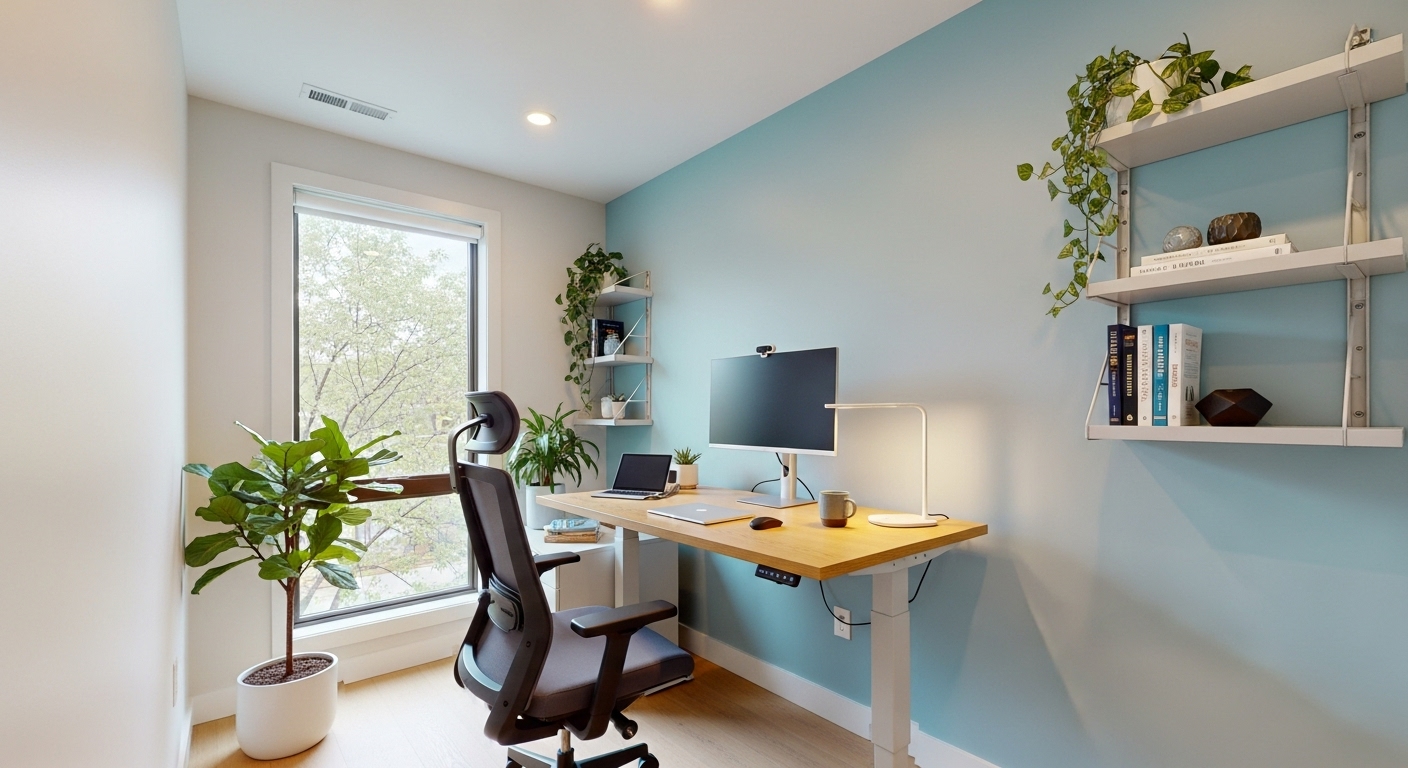For today’s startups, agility isn’t just a buzzword; it’s a core survival principle. The ability to pivot quickly, scale on demand, and manage cash flow effectively often separates high-growth companies from those that falter. This is where the traditional five-year office lease, with its hefty upfront costs and rigid terms, becomes a significant liability. In response, a new era of workspace solutions has emerged, offering unprecedented flexibility. Flexible office spaces, serviced office solutions, and coworking hubs are no longer fringe concepts but central components of the modern business landscape. Understanding the nuances between these models is crucial for any founder looking to establish a physical presence without sacrificing the adaptability that defines a startup. This guide will dissect the key differences, comparing serviced offices and coworking spaces across critical factors like cost, culture, scalability, and amenities to help you choose the perfect launchpad for your venture’s success.
Understanding the flexible workspace spectrum
The term ‘flexible office space’ serves as an umbrella for various non-traditional workspace models that prioritize short-term agreements and adaptable terms over rigid, long-term leases. At its core, this model provides businesses with the ability to rent office space on a monthly, or even daily, basis. This includes everything from a single desk to a fully-equipped private office suite. The two most prominent categories under this umbrella are serviced offices and coworking spaces, and while they share similarities, their core offerings cater to different needs. A serviced office, often referred to as an executive suite or business center, offers a fully furnished and equipped private office space. The provider manages the entire facility, including reception staff, IT infrastructure, mail handling, and cleaning services. The key appeal is a turnkey solution that allows a business to move in and become operational almost immediately with a professional, branded presence. On the other hand, a coworking space is primarily focused on shared environments. While many offer private offices, their defining feature is the open-plan area where individuals and teams from different companies work alongside one another. The emphasis is on community, collaboration, and networking. Coworking providers foster this environment through shared amenities like lounges, kitchens, and regular social or professional events. Understanding this fundamental difference is the first step for a startup: are you prioritizing a private, professional, all-inclusive service package, or a collaborative, community-driven, and often more cost-effective environment?
A deep dive into serviced office solutions
Serviced office solutions provide a compelling proposition for startups that require privacy, a professional image, and minimal administrative overhead. Unlike the open-plan nature of many coworking spaces, a serviced office grants a team its own secure, lockable office. This is critical for startups handling sensitive client data, intellectual property, or those in regulated industries like finance or healthcare. The environment is inherently more corporate and less chaotic, which can be beneficial for deep work and hosting important client meetings. The ‘serviced’ aspect is the main value driver. These solutions are all-inclusive, bundling rent, utilities, high-speed internet, furniture, and access to shared facilities like meeting rooms and kitchen areas into a single monthly fee. More importantly, they typically include professional support staff. A dedicated receptionist can answer calls in your company’s name, greet guests, and handle mail, projecting an image of a much larger, more established organization. This turnkey nature drastically reduces the administrative burden on a founding team, freeing up valuable time that would otherwise be spent negotiating with utility providers, buying furniture, or managing facility maintenance. While the per-desk cost may appear higher than some coworking options, the total value proposition, including the built-in professional infrastructure and privacy, often makes it a strategic choice for startups ready to present a polished, credible image to the world.
The collaborative power of coworking spaces
Coworking spaces have become synonymous with startup culture for a reason: they are built on the principles of community, collaboration, and serendipity. For early-stage startups, particularly solo founders or small teams, the primary benefit extends far beyond a physical desk. It’s about immersion in a dynamic ecosystem of like-minded entrepreneurs, freelancers, and innovators. This environment naturally fosters networking opportunities that can lead to new clients, partnerships, or even investment. Many coworking providers actively curate this community through organized events, from weekly happy hours and shared lunches to workshops and guest speaker sessions. This built-in social and professional calendar can be an invaluable resource, helping to combat the isolation that often accompanies the entrepreneurial journey. The physical layout itself, typically centered around open-plan ‘hot desks’ and communal lounges, encourages interaction and the cross-pollination of ideas.
As Jeremiah Owyang, a tech industry analyst, noted, “The future of work is about creating a community, a sense of belonging, and a shared purpose.”
This is the ethos that coworking spaces embody. Financially, coworking often presents a lower barrier to entry, with flexible ‘hot desk’ or ‘dedicated desk’ memberships that are significantly cheaper than a private serviced office. For a bootstrapped startup, this cost-effectiveness is a major draw, allowing them to access a professional workspace and a vibrant community without a significant capital outlay.
The cost equation: a financial comparison for startups
For any startup, managing burn rate is paramount, and office space is often one of the largest fixed expenses. Comparing the financial models of serviced offices and coworking spaces requires looking beyond the sticker price. A traditional office lease is the most capital-intensive, requiring a large security deposit, upfront costs for furniture and IT setup, and separate, ongoing payments for utilities, internet, cleaning, and maintenance. In contrast, both serviced offices and coworking spaces bundle these expenses into one predictable monthly payment, simplifying budgeting and protecting cash flow. Coworking spaces generally offer the lowest entry point. A ‘hot desk’ membership, which provides access to any available desk in a common area, is the most affordable option. A ‘dedicated desk’ offers a reserved spot in the open plan for a higher fee. The most expensive coworking option, a private office, begins to overlap with serviced office pricing. Serviced offices typically start their pricing at the private office level. While the monthly fee for a two-person serviced office might be higher than a two-person private office in a coworking space, it’s crucial to evaluate the included services. The cost of a full-time receptionist, for example, is baked into the serviced office fee, a service that would be a significant additional expense if hired directly. Startups must conduct a total cost of occupancy analysis: list all needs, from internet speed and printing to mail handling and reception services, and compare which model provides the most value for their specific requirements. For a startup prioritizing the lowest possible cost, coworking is the clear winner. For one that needs robust administrative support and values a fixed-cost structure for premium services, a serviced office can be more financially prudent in the long run.
Scaling with agility: how these spaces fuel growth
A startup’s trajectory is rarely linear. A team might grow from three people to ten in a matter of months following a successful funding round or product launch. This is where the inherent inflexibility of a traditional lease becomes a major obstacle. Being locked into a space that is suddenly too small can stifle growth, while leasing a larger space in anticipation of growth can drain precious capital. Flexible workspaces are designed specifically to solve this problem. Both coworking and serviced office providers offer scalability as a core feature. Agreements are typically structured on a month-to-month or short-term basis, allowing a company to add or remove desks and office space with minimal notice. If your team doubles in size, you can seamlessly transition from a four-person office to an eight-person office within the same building, often overnight. This ‘on-demand’ scalability means you only ever pay for the space you need, when you need it. This agility also works in reverse. If a company needs to downsize or pivot to a remote-first model, it can do so without the financial penalty of breaking a long-term lease. This ability to instantly adjust the real estate footprint in line with business performance provides a critical safety net for startups navigating an uncertain market. This elasticity is a strategic advantage, transforming real estate from a fixed, long-term liability into a variable, operational expense that directly aligns with the company’s growth curve.
Culture, community, and branding in your workspace
A workspace is more than just a place to work; it’s a physical manifestation of a company’s culture and brand. The choice between a serviced office and a coworking space can have a significant impact on both internal team dynamics and external perception. Coworking spaces are inherently social and energetic. The constant buzz, shared spaces, and diverse mix of people create a dynamic and often informal atmosphere. This can be fantastic for fostering creativity, collaboration, and a sense of being part of a larger tech or creative scene. However, for a company trying to build a very specific, focused internal culture, the constant external influence can be a challenge. A serviced office, by providing a private, self-contained space, offers a blank canvas. It allows a startup to cultivate its unique culture without outside noise. The team can brand their office, establish their own norms, and operate with a level of privacy and focus that is difficult to achieve in an open-plan environment. From a branding perspective, a serviced office often provides a more prestigious business address and a professional, corporate-style reception, which can be important for startups trying to win enterprise clients or attract seasoned talent. The choice hinges on the startup’s identity: is your brand about being an open, connected part of a bustling ecosystem, or is it about building a focused, private, and highly professionalized entity?
Making the right choice: a practical checklist for founders
Deciding between a serviced office and a coworking space is a strategic decision that should align with your startup’s specific stage, goals, and culture. There is no one-size-fits-all answer. To make an informed choice, founders should work through a practical checklist of key considerations. First, evaluate your budget: what is the maximum all-inclusive monthly cost your startup can comfortably afford? Coworking generally offers lower-cost entry points. Second, analyze your need for privacy and security. Does your team handle sensitive information or require a quiet, focused environment? If yes, a serviced office is likely the better fit. Third, consider your company culture. Are you looking to foster collaboration, networking, and a vibrant social atmosphere, or are you focused on building a distinct internal culture? The former points to coworking, the latter to a serviced office. Fourth, project your growth. How quickly do you anticipate your team size changing? Ensure your chosen provider has a clear and simple process for scaling your space up or down. Fifth, assess your need for support services. Is having a professional receptionist to greet clients and manage calls a priority? This is a core feature of serviced offices. Finally, consider your brand image. What message do you want your office to send to clients, investors, and potential employees? By systematically weighing these factors against your unique business needs, you can move from calculation to a confident conclusion about which workspace model will best serve as your company’s home.
In conclusion, the rise of flexible office solutions has fundamentally empowered startups, transforming a once-prohibitive capital expense into a scalable, operational one. The debate between serviced offices and coworking spaces is not about which is objectively better, but which is the right fit for your specific venture at its current stage. Coworking spaces offer an unparalleled sense of community, networking potential, and cost-effectiveness, making them an ideal launchpad for early-stage startups and solo founders seeking to immerse themselves in a dynamic ecosystem. Serviced offices, in contrast, provide the privacy, professionalism, and turnkey administrative support that can help a growing startup establish credibility and focus on its core operations without distraction. The choice you make will shape your daily operations, your company culture, and your bottom line. By carefully evaluating your startup’s needs against the distinct advantages of each model—from budget and privacy to scalability and brand identity—you can select a workspace that doesn’t just house your team, but actively accelerates its growth and success in an increasingly competitive landscape.





